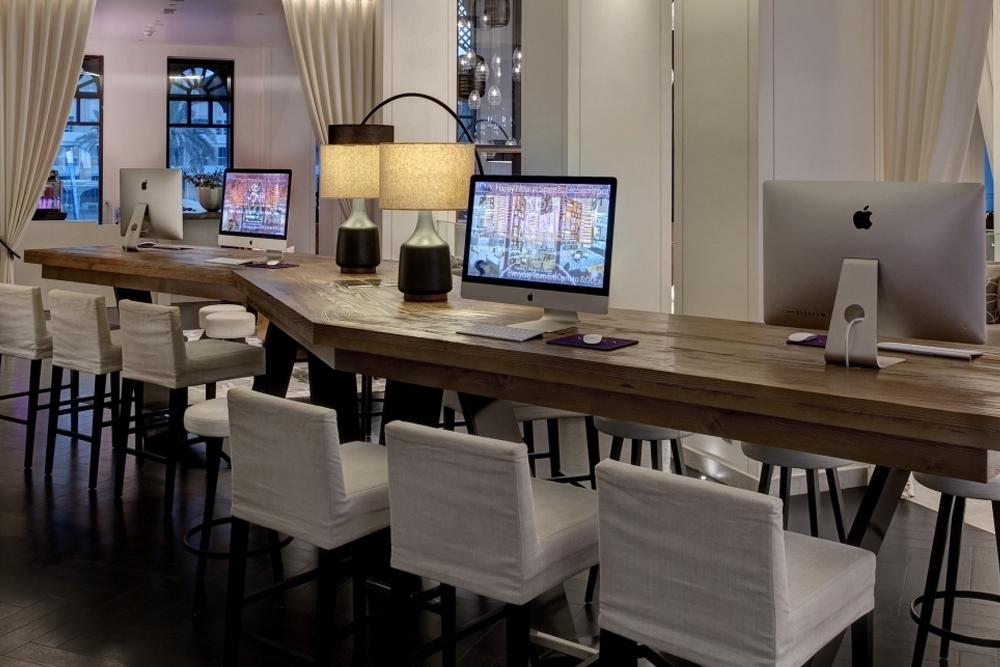
Workations, which allow employees to combine vacation and work, have become a popular employment strategy for organisations in the US and Europe. Thanks to collaboration tools and progresses in workplace productivity technologies, it has become easy for remote workers to blend leisure and productive time. This allows many, whether Gen Z singletons, millennial professionals or freelancers, to tick a destination off that bucket or visit a long-distance significant other, friends or family without having to take time off.
In the Maldives, for example, hotels are offering the ultimate ‘workation packages’ where guests can work from a secluded beach house, with personal desks and high-speed WiFi. Meanwhile, some hotels in India have created indoor and outdoor common areas that function as work-friendly spaces. Dedicated poolside spaces, for instance, offer remote workers a table, chair, parasol, WiFi access and a power socket, as well as a sun lounger for those breaks in between working.

Danielle Curtis
And the pandemic-inspired fad of working remotely while using the rest of the day and weekends to explore new places is fast catching up in the Middle East. Hotels throughout the region are preparing to capitalise on the global demand for blurring the lines between work and leisure, which has mostly been driven by the social restrictions imposed by governments around the world. According to research conducted as well as commissioned by Reed Travel Exhibitions, the organiser of Arabian Travel Market (ATM), many travel experts are expecting a surge in workations in 2021 and beyond.
“The hotel industry in the Middle East has gradually started to recover, especially in places such as Dubai. Staycations created the initial demand after lockdown, the next step has been the continued growth of workations, which are also referred to as ‘bleisure’ stays, which tend to bring in more visitors from overseas,” Danielle Curtis, Exhibition Director ME, Arabian Travel Market, said.

Curtis added Dubai has launched a remote visa programme that will allow visitors to stay as long as a year. While in Dubai, they can have access to co-working spaces and government support services. To accommodate the needs of the ‘new normal’ smart working traveller even further, an increasing number of hotels in the MENA region are offering pop-up co-working spaces with the aim of rethinking and making the most of the hotel space.
With over 50 percent of the world’s working population doing so from home and the rise of entrepreneurial digital nomads, who actually prefer to work remotely, the popularity of workations is set to increase. Companies like Facebook, Twitter and Spotify have announced that employees can work from home indefinitely, fuelling thoughts the trend, which alleviates the boredom of living and working from home, will continue once the pandemic is over.
According to Curtis, the demand for workations could even broaden to include families, however this depends on the effectiveness of vaccines, as well as travel and other social restrictions. “If children are being home-schooled it would make little difference if they were at home or on a workation with their parents. Indeed, time away from long cold winter nights in northern Europe, would undoubtedly improve a family’s state of mind,” she said.

















